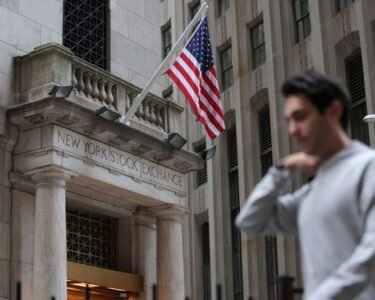There are various types of fees charged by trading platforms:
1. Share trading fee
This is a flat fee charged by the platform each time you buy or sell shares. Some platforms charge no share trading fee, while others may charge between £6 to £12 per trade. Trading fees for funds vary from zero to the same fee as trading shares.
2. Platform fee
This is an annual fee charged for holding the shares and funds on your platform. Some platforms charge no fee for this, others charge a flat fee and some charge a percentage, typically 0.25% to 0.45% of the value of your portfolio.
These fees will usually be taken out of any cash held on your account or you can pay fees directly by debit card. However, the platform is likely to sell a proportion of your shares as a last resort if fees remain unpaid.
It’s also worth looking at the types of investments that incur a platform fee as some platforms charge for holding funds, but not for shares. When a platform fee is charged for holding shares, this is sometimes capped at a maximum amount per year.
There are two types of percentage-based platform fees:
- Tiered fee: this is the most usual type of platform fee, whereby you pay different fees on different ‘slices’ of your portfolio. For example, if you have a portfolio worth £300,000, you might pay 0.45% on the first £250,000, then 0.25% on the next £50,000.
- Non-tiered fee: a small number of providers charge a non-tiered fee, whereby you pay the same fee across your whole portfolio. For example, if you have a portfolio of £300,000, you would pay 0.2% on the whole £300,000.
3. Foreign exchange fee
If you buy or sell shares denominated in a currency other than pounds sterling, platforms charge a foreign exchange fee. This is also referred to as a foreign currency conversion fee and typically varies from 0.5% to 1.5%. Some platforms also charge a higher trading fee for overseas shares.
A small number of platforms allow you to hold foreign currency in your account, which enables you to convert it once and use this money for buying shares and holding the proceeds from selling shares in the local currency.
Investments in a currency other than sterling are exposed to currency exchange risk. Currency exchange rates are constantly changing which may affect the value of the investment in sterling terms. You could lose money in sterling even if the stock price rises in the currency of origin. Stocks listed on overseas exchanges may be subject to additional dealing and exchange rate charges, and may have other tax implications, and may not provide the same, or any, regulatory protection as in the UK.
4. Other fees
Some of the platforms charge other types of fees, such as inactivity fees and withdrawal fees (for accounts held in an overseas currency) and fees for trading by telephone.
Although not technically a fee, platforms also make money on the buy-sell spread on shares. For example, you might be looking to buy a share with a buy-sell spread of 98-100 pence. This means that you would pay 100 pence to buy a share, and receive 98 pence to sell a share.
Some platforms may offer more competitive buy-sell spreads than others, and less traded shares, such as FTSE Small Cap companies, typically have wider spreads than FTSE 100 companies.




